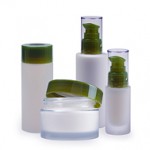Selling & Manufacturing Aromatherapy Products
Do I need a licence to make and sell aromatherapy products and essential oils?
No, in general you will only need a licence if your products are sold as medicines or suggest they are by making medicinal claims on labels, promotional material or websites, in which case you will need either a Product Authorisation under the UK Medicines Act or a Traditional Herbal Registration under the Traditional Herbal Medicinal Products Directive. However if you manufacture aromatherapy products your premises may be subject to notification under the Cosmetic Regulations or licensing by your local authority who should be contacted for details.
For more information and specific advice on this topic, Contact Us.
Do I have to be an aromatherapist to make and sell aromatherapy products?
No, there is no legal requirement to be an aromatherapist or to hold any particular qualification to sell essential oils or make aromatherapy products containing them.
I am a qualified aromatherapist – can I sell the products I supply to my clients to the public?
Yes, but you cannot make medicinal claims for them and you will have to identify which of the several sets of legislation your products have to comply with and then develop, manufacture, label and market them to comply with that legislation.
What do I need to know to start selling essential oils and aromatherapy products?
First you will have to decide if you are going to develop and make the products yourself, commission someone else to make them or sell other peoples products as a distributor or retailer. Then you will have to identify the legislation that relates to your products and then make a business plan to make sure that you understand how much it will cost to develop, manufacture, package and/or sell your products.
ATC can help you to get your project stated either on a consultancy basis or as part of a membership package, Contact Us.
Is there legislation that applies to the sale to essential oils and aromatherapy products?
Yes, although there is no single piece of legislation that applies to the manufacture and sale of essential oils and aromatherapy products containing them there are several pieces of consumer protection legislation that might apply to these products they include the General Products Safety Regulations and the Cosmetic Products safety Regulations. The specific regulations that apply to essential oils and aromatherapy products will depend on the type of product and can be difficult to identify.
ATC’s regulatory experts can help you to identify the legislation that applies to your specific products. For further details, Contact Us.
What do I have to put on the label when selling essential oils to the public?
In addition to the wording specified by the General Product Safety Regulations, weights and measures and any other regulations relevant to your product it is good practice to have the common name and full botanical name of the essential oil (or product name if a mixture), directions for use, contraindications where applicable and specific warnings like do not take internally and keep away from children together with a batch number and use by date.
I am an aromatherapist what do I have to put on the label for products I sell to my clients?
It is good practice to follow the labelling requirements specified by the Medicines Act or the Traditional Herbal Medicinal Products Directive and include the name of the product and a list of active ingredients, the name of the client the product is provided to, your name and address, instructions for use and any contraindications and/specific or general warnings like do not take internally.
How do I dispose of essential oils safely?
For domestic users: contact your local authority waste disposal department or access their web page (details in your local telephone directory for specific advice on disposal of essential oils and/or cosmetic/perfumery products and follow their recommendations. If there is no specific advice then dispose of essential oils at your local Household Waste Recycling Centre in the same way as paint and solvents.
For professional/industrial users: contact your local Hazardous Waste disposal contractor, see local telephone or trade directory or search on line for contact details, and follow their instructions. Essential oils in bulk are considered to be hazardous waste and may be flammable.
How do I know the essential oils I buy are pure and not adulterated or contaminated?
This is a difficult and complex issue and is one of the reasons that ATC was established to bring together growers, distillers, manufacturers and suppliers of essential oils to promote the responsible marketing of pure, unadulterated essential oils primarily to the aromatherapy professions and allied industries see the ATC Aims & Objectives.
To see the companies who uphold the Aims and Objectives of the ATC, see our complete Members List. If you would like to discuss this issue in more Contact Us.
How can I find out which essential oils are safe to use in pregnancy and on my baby?
Before using essential oils or products containing them during pregnancy or on babies or young children consult your doctor, midwife/health worker or qualified aromatherapy practitioner. In addition you should bear in mind the specific recommendations of specialist suppliers of products for use during pregnancy and for babies and young children.
Alternatively you can get advice by contacting the Aromatherapy Council.
Copyright © Aromatherapy Trade Council 2010










